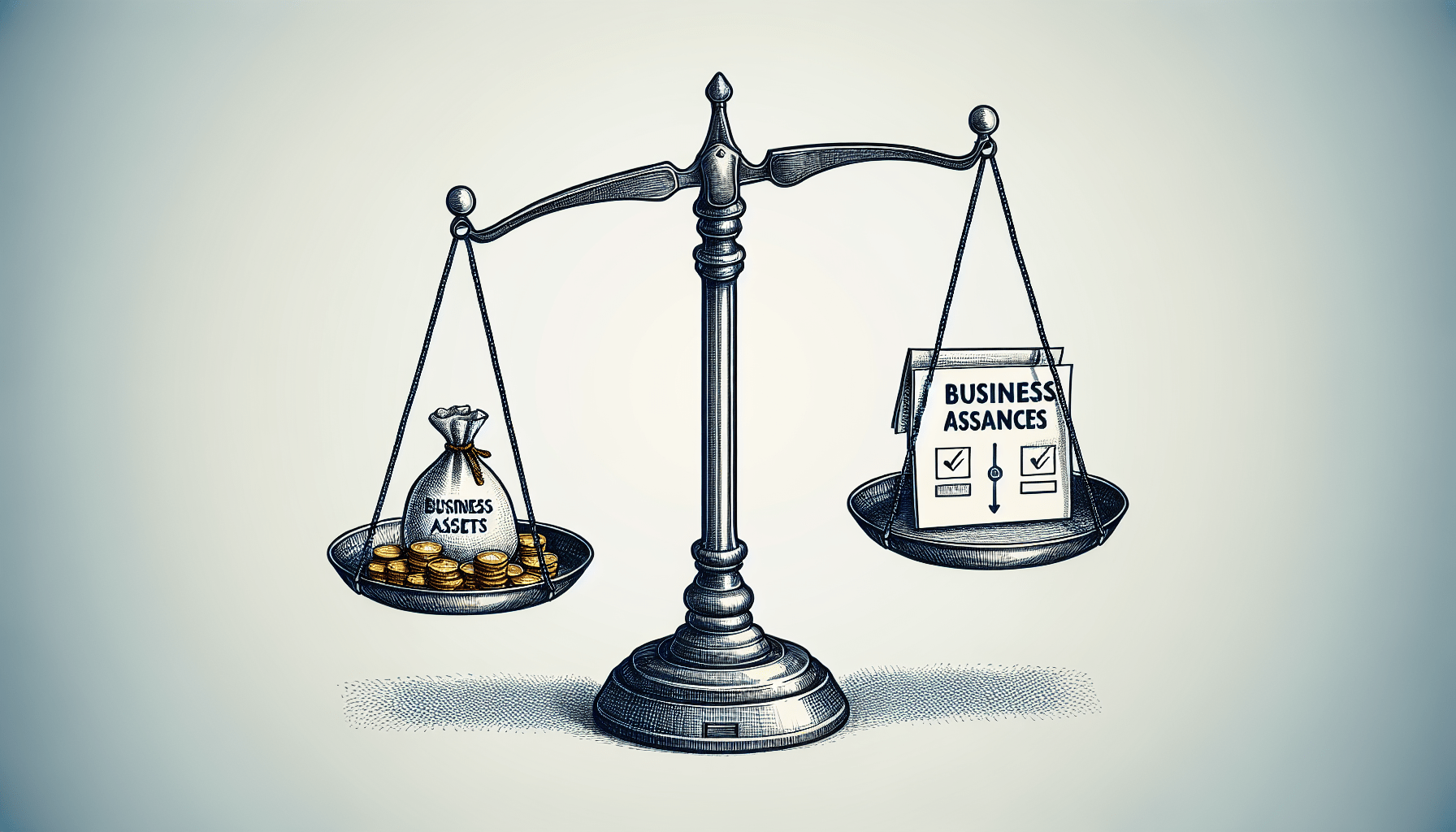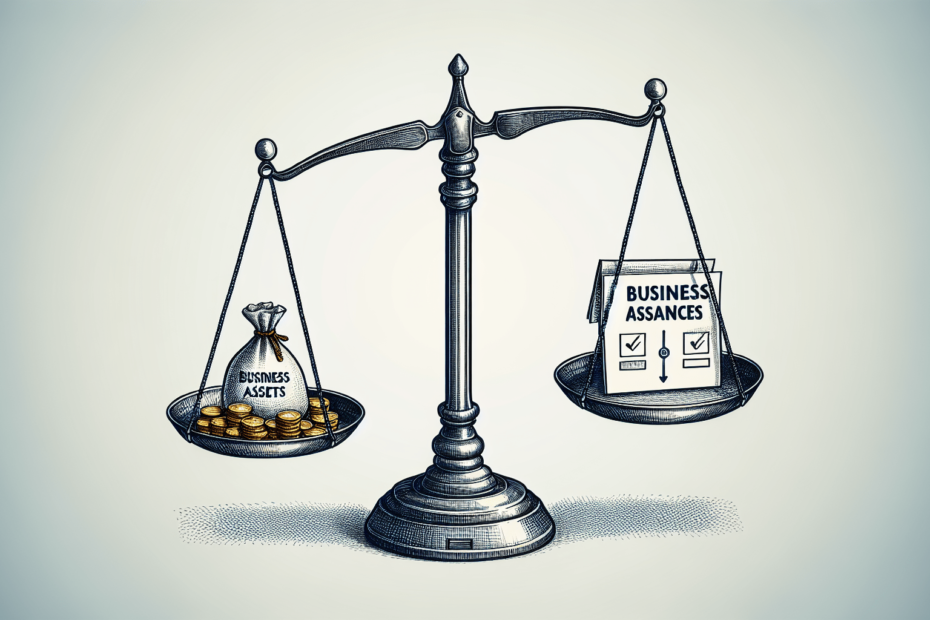When it comes to determining the appropriate level of insurance coverage for your business, it’s essential to assess your specific needs and risks. Factors such as the size of your business, the industry you operate in, and the potential liabilities you may face all play a role in determining the right amount of coverage. By evaluating these factors carefully and working with an experienced insurance agent, you can ensure that you have the right level of protection to safeguard your business against unforeseen events. How Do I Determine The Appropriate Level Of Insurance Coverage For My Business?
So, you’ve finally taken the leap and started your own business. Congratulations! Now, one of the key aspects of running a successful operation is ensuring that you have the right insurance coverage in place. But with so many options available, how do you determine the appropriate level of insurance coverage for your business? Let’s break it down for you!

Understanding Your Business Needs
First things first, you need to understand your business needs before you can determine the appropriate level of insurance coverage. Take some time to assess the risks associated with your industry, the size of your business, and any potential threats that could impact your operations.
For example, if you run a small retail business, you may need coverage for property damage, liability claims, and inventory protection. On the other hand, if you operate a construction company, you may need coverage for worker’s compensation, equipment damage, and legal expenses.
Types of Insurance Coverage
Now that you have a better understanding of your business needs, let’s dive into the types of insurance coverage available to you. Here are some common types of insurance that you may need for your business:
General Liability Insurance
General liability insurance provides coverage for bodily injury, property damage, and advertising injury claims made against your business. This type of coverage is essential for protecting your assets in case of a lawsuit.
Property Insurance
Property insurance covers damage to your business property, including buildings, equipment, inventory, and supplies. This type of coverage is crucial for ensuring that your business can recover quickly in the event of a fire, theft, or natural disaster.
Workers’ Compensation Insurance
Workers’ compensation insurance provides coverage for medical expenses, lost wages, and legal fees in case an employee is injured on the job. This type of coverage is required by law in most states and is designed to protect both your employees and your business.
Professional Liability Insurance
Professional liability insurance, also known as errors and omissions insurance, provides coverage for claims of negligence or inadequate work performance. If you provide professional services such as consulting or advice, this type of coverage is essential to protect your business from potential lawsuits.
Cyber Liability Insurance
Cyber liability insurance protects your business from the financial losses associated with cyber-attacks, data breaches, and other cyber threats. This type of coverage is becoming increasingly important in today’s digital age, where businesses are vulnerable to cyber risks.
Assessing Your Risks
Once you have identified the types of insurance coverage that may be necessary for your business, it’s time to assess your risks. Consider factors such as the location of your business, the type of industry you operate in, and any potential threats that could impact your operations.
For example, if your business is located in an area prone to natural disasters such as hurricanes or earthquakes, you may need additional coverage for property damage. On the other hand, if your business relies heavily on technology to operate, you may need higher limits of cyber liability insurance.
Working with an Insurance Agent
Navigating the world of business insurance can be overwhelming, which is why it’s a good idea to work with an insurance agent who can help you determine the appropriate level of coverage for your business. An insurance agent can assess your risks, recommend the right types of coverage, and help you compare quotes from different insurance providers.
When choosing an insurance agent, make sure to ask about their experience working with businesses similar to yours, their knowledge of the insurance industry, and their ability to tailor a policy to meet your specific needs. A good insurance agent will be your trusted advisor and guide you through the process of selecting the right coverage for your business.
Assessing Your Budget
While having the right insurance coverage is crucial for protecting your business, you also need to consider your budget when determining the appropriate level of coverage. Insurance premiums can vary depending on the type of coverage, the limits of coverage, and your business’s risk profile.
When assessing your budget, consider factors such as your revenue, operating expenses, and cash flow. Determine how much you can afford to spend on insurance premiums without compromising your business’s financial stability. Keep in mind that while it may be tempting to cut costs by opting for lower coverage limits, doing so could leave your business vulnerable in the event of a claim.
Reviewing Your Coverage Regularly
Once you have purchased the appropriate level of insurance coverage for your business, it’s important to review your coverage regularly to ensure that it still meets your needs. As your business grows and evolves, your insurance needs may change, requiring you to adjust your coverage accordingly.
Schedule annual reviews with your insurance agent to discuss any changes to your business, such as new products or services, changes in revenue, or expansions to your operations. Your insurance agent can help you identify gaps in coverage and recommend appropriate policy updates to ensure that your business is adequately protected.
Conclusion
Determining the appropriate level of insurance coverage for your business may seem like a daunting task, but with the right guidance and understanding of your business needs, you can make informed decisions to protect your assets and mitigate risks. Remember to assess your risks, work with an experienced insurance agent, consider your budget, and review your coverage regularly to ensure that your business is adequately protected. By taking the time to invest in the right insurance coverage, you can safeguard your business against unforeseen events and set yourself up for long-term success.
